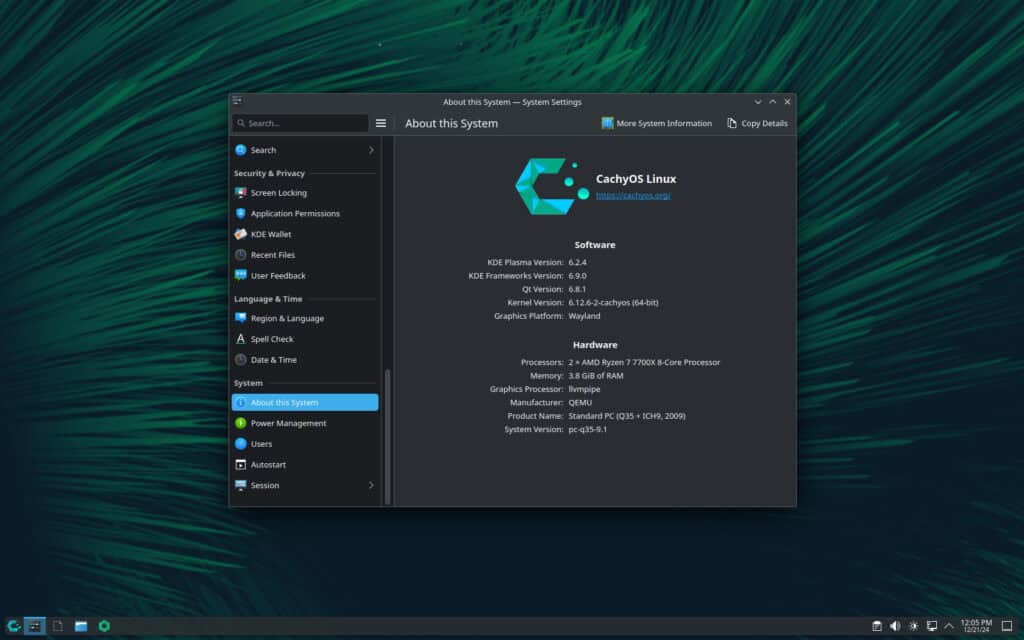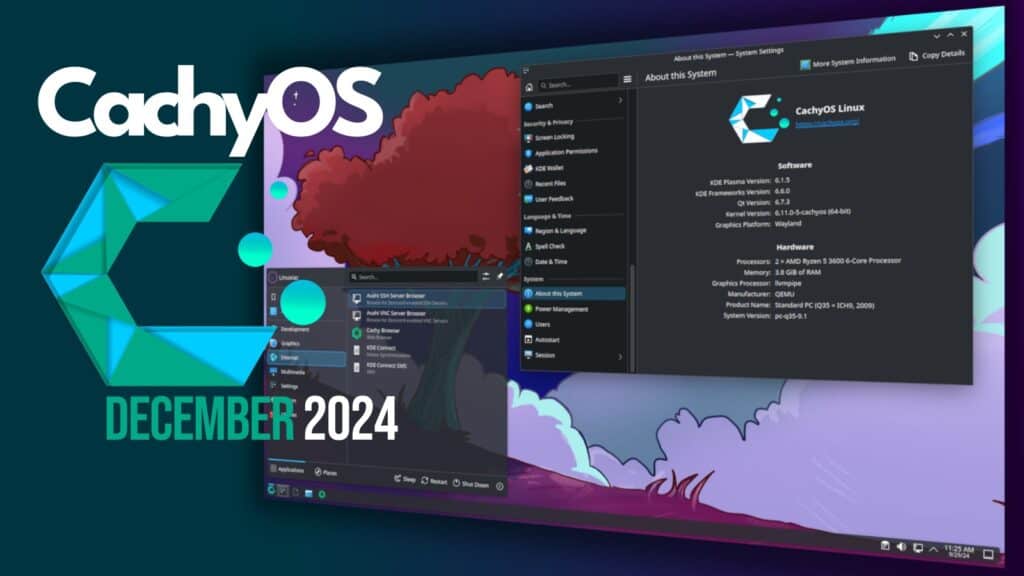Over a month after its previous November release, the Arch-based gamers-focused CachyOS has rolled out its 12th (December) update, delivering a range of new features and optimizations.
One of the biggest highlights of this release is the default kernel’s adoption of AutoFDO (Auto-Feedback-Directed Optimization) for performance optimization. According to the developers, the team ran a variety of profiling workloads (sysbench, Git operations, kernel compilation, and more) on a Zen5 system to help fine-tune the kernel.
Although performance gains may still be modest at this stage, future plans include merging multiple profiling data sets for broader optimization. Once LLVM 19 becomes more widely available, the distro will aim to leverage its enhanced profiling and Propeller Optimization, so stay tuned.

Meanwhile, the Mesa stack gets a fresh boost with RustiCL taking over from the default OpenCL driver. Additionally, the kernel-manager now integrates scx_loader for sched-ext scheduler management, which lets you seamlessly switch between schedulers. Thanks to a dedicated configuration file, these schedulers are also properly configured right out of the box.
On top of all these kernel-level changes, CachyOS’s December update introduced wireless-regdb by default and enabled Bluetooth services across the board.
If you rely on Wi-Fi, this enhancement helps ensure compliance with regional regulations and can unlock additional channels for faster connections. Simply customize your region in the “/etc/conf.d/wireless-regdom” file, and you’re good to go.
The installer has been tweaked to avoid spawning an additional terminal window with logs, leading to a more polished installation flow. An issue with the internet connectivity check has also been resolved, guaranteeing a reliable network verification process during setup.
If you’re using the Handheld Edition, you’ll be pleased to learn that various handheld-oriented packages have been updated, issues related to the power profile handling fixed, and support for Wi-Fi 6 added to deliver faster network connectivity on portable devices.
On the bug fixes side, common issues related to the installer have been addressed, such as removing debug terminal windows that popped up during the setup. Partition management also benefits from more stringent umask settings, preventing unauthorized access to the “/boot” directory.
The announcement provides a complete list of changes. For users eager to try out the latest capabilities, the updated ISO files are available for download via CachyOS’s SourceForge mirrors for those opting for a fresh install.
